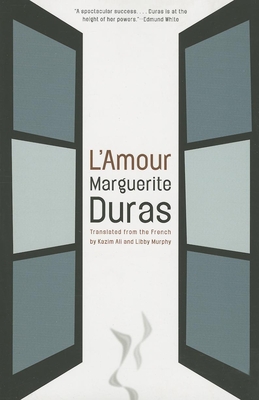L'Amour

L'Amour
"Duras's language and writing shine like crystals."--New Yorker A man--the traveler--arrives in the seaside town of S. Thala with the intent to abandon his present, and instead finds himself abruptly reintroduced to his past. Through his subsequent interactions with "her," the woman to whom he was briefly engaged as a young man over twenty years ago, and "him," the man who walks and keeps watch over "her," the traveler is soon drawn back in and acclimated to the strange timelessness and company that is S. Thala. Written in a stark and cinematic narrative style, this sequel to Duras's 1964 novel The Ravishing of Lol Stein is a curious, yet haunting representation of the human memory: what we choose to recall, what we choose to forget, and how reliable we ultimately decide ourselves to be. Marguerite Duras wrote dozens of plays, film scripts, and novels, including The Ravishing of Lol Stein, The Sea Wall, and Hiroshima, Mon Amour. She's most well known for The Lover wh
PRP: 80.29 Lei
Acesta este Prețul Recomandat de Producător. Prețul de vânzare al produsului este afișat mai jos.
72.26Lei
72.26Lei
80.29 LeiLivrare in 2-4 saptamani
Descrierea produsului
"Duras's language and writing shine like crystals."--New Yorker A man--the traveler--arrives in the seaside town of S. Thala with the intent to abandon his present, and instead finds himself abruptly reintroduced to his past. Through his subsequent interactions with "her," the woman to whom he was briefly engaged as a young man over twenty years ago, and "him," the man who walks and keeps watch over "her," the traveler is soon drawn back in and acclimated to the strange timelessness and company that is S. Thala. Written in a stark and cinematic narrative style, this sequel to Duras's 1964 novel The Ravishing of Lol Stein is a curious, yet haunting representation of the human memory: what we choose to recall, what we choose to forget, and how reliable we ultimately decide ourselves to be. Marguerite Duras wrote dozens of plays, film scripts, and novels, including The Ravishing of Lol Stein, The Sea Wall, and Hiroshima, Mon Amour. She's most well known for The Lover wh
Detaliile produsului










